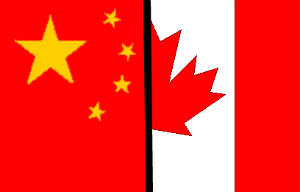The signing of the Canadian-Sino currency deal is a positive development for both the provincial and federal levels of government.
In early November 2014, the Canadian and Chinese governments signed a currency deal, establishing a trading hub, which will most likely be established in Toronto Ontario, to exchange the Loonie to the Yuan (renminbini) and vice versa. The goal of the trading hub is to boost trade relations between the two countries.
The agreement allows for direct trading of currencies, eliminating the intermediary exchange body. Originally, to obtain the respective currencies, buyers had to first purchase US currency and from there, they could purchase the loonie or the yuan.
The deal will now greatly improve the efficiency of trade between the two countries, providing multiple benefits including reduced wait times and costs to exchange currency. It is expected that the facilitated currency exchange will encourage more small and medium-enterprises in Canada to do business in China, the world’s second largest economy. Both exporters and importers are expected to benefit, since China will in return find it easier to buy and sell with Canada.
The creation of a currency hub, located in Toronto, is great news for the province of Ontario, which is actively involved in increasing its relations in China. Ontario Premier Kathleen Wynne attended a trade mission to China on November 1, 2014 to promote the province, especially its high tech sector, and to reduce its export dependence on the American market. Additionally the deal will promote Toronto’s status as a Global Financial Center.
The agreement also shows positive signs of increasing federal Sino-Canadian relations, against a background of allegations of Cyber attacks by China against Canada. The Chinese government since the beginning has denied these allegations.
Canadian views towards increasing trade with China is mixed. The recent Asia-Pacific Foundation of Canada national opinion poll “Canadian Views on Asia” demonstrated that only 35% percent of Canadians are for a Free Trade agreement with China, a figure that dropped from 45% in 2013. In contrast, an average of 70% of Canadians are in support of a free trade deal with Australia.
Only time will tell whether the increasing ease of currency transfers will change the mindsets of Canadians towards trade with China. However, it is important to remember that Canada has received an increasing number of Chinese immigrants in Canada over the past decade. As this number continues to grow, so too will the percentage in Chinese currency trade.






